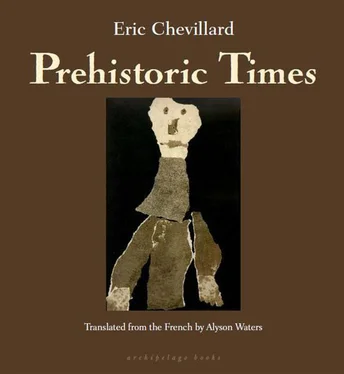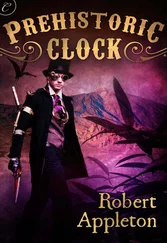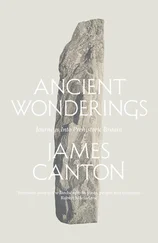* Professor Glatt then placed in our narrator’s hand the key that opens the heavy grate, for I am not a woman to write gate when it is possible to write grate , even if this forces the author of this text to go back and do a double take — what did I write? — and even if it forces the bilingual reader to also take another little trip to the original, thereby slowing down the narrative even more — but I was told, nay, assured, that there was no malevolence where none intended, and that the narrator would gladly give me an entire page to express the nuance of his pun in slow and ingenious periphrases that, indeed, delay his taking on his functions even more: so he will wait patiently until I have overcome the difficulty, what else can he do, there’s no bad faith here this time, it’s simply a case of absolute necessity, which, by definition, cannot be imputed to me, whatever the original narrator and his smooth professor think. I have my conscience, I didn’t invent the Babel of this world, and when given the choice between two languages, I always choose English, and when given the choice between two words as well, I always choose the one that serves my thought or idea best, not the author’s — and a grate is heavy to open, it needs an equally heavy skeleton key, dotted with rust, a key you can wear on your belt, unlike the gate, what I understand by gate, a little squeaky tinny place of ingress that needs merely a tiny latchkey to open it, a tiny key that clinks like small change deep in your pocket. Likewise, I’m told, some ornithologists will know the difference between a downy woodpecker and a hairy woodpecker (Downy has a white back and a small bill, like a latchkey, whereas Hairy has a white back and a large bill, like a skeleton key, and any common bird-watcher should be able to distinguish between Downy’s flat pick , which is not nearly as sharp as Hairy’s peek — aha, a pick can be used to pick a lock, a peek can be used to peek through the keyhole — the words came straight from Peterson’s Field Guide to the Birds East of the Rockies — they have nothing to do with me. [trans.]
WOULD I even confess that I am now eager to get down to work? Why not? But would I manage to extract this confession from myself? What would such a forced confession be worth anyway? Or perhaps I could confess only later to retract my confession, thereby slowing the terrible machine set in motion, jamming its gears? But, once inside, would I still have the strength and clarity of mind to act according to my plans? Am I not instead running the risk of being ground to a powder by attempting to impede the natural evolution of events, then carried off by my own tale as it suddenly obeys the laws of its genre and sprints impetuously and inexorably toward its end, and toward my own as a result, when all the pages have been turned. Is there, in truth, any difference between the page you turn once it has been read and the one you forcefully rip out, twist up, and place on the dying embers to rekindle the blaze? The reader’s left hand holds nothing but ashes; it is not in my interest to race toward the conclusion of this tale and consequently even less in my interest to hurl myself into it headlong and blindly, I’ll go in soon enough.
For I shall get there, I’m already getting there, by the winding routes that are my own, even if at times my pencil point breaks or, more often, slips, dragging the sentence along, which is then diverted and turns into a digression as sharply and unpredictably as a shying horse that is obviously too spirited to have descended from the Forest horse of old with its goatlike beard, bushy mane and tail, dense and wiry coat, sloping croup and crude joints, today represented by those draft or packhorses that taste like beef but most probably belong to the noble lineage of the Steppe horse with its concave profile, stiff coat, strong and slender joints, I’d lean toward one of those swift pintos favored by the Comanche, either an overo, whose coat will be black or brown with big, light-colored patches, or else, no, a white-speckled tobiano, a stallion or a mare, these details are unimportant. Nonetheless, a horse that shies seemingly without reason must have been frightened by something; perhaps a too-jittery horseman conveys his anxiety and the animal, believing a real danger exists, shies away to avoid it. But it also happens that the animal’s panic may be caused by a donkey, a rabbit, a passerby, a stone, a shimmering puddle, or any other unfamiliar object, a milestone, an old shoe, a dead bird, an umbrella, toward which one should immediately lead it so it may sniff and get to know it while seeing to it that the horse doesn’t get worked up again if examining the object were to justify and then increase its fright, in which case the last thing the horseman should do would be to vault off the horse — there is less chance of injury if he remains in the saddle; instead he should try to wedge one of the reins between his arm and the withers of his mount while sharply pulling on the other rein several times; the horse, manhandled in this way, will finally calm down with a few soothing words — but no sugar, which would be rewarding bad behavior — just a gentle tap on the neck and it will get back on the straight and narrow. I’ve made up my mind; tomorrow at the latest I’ll open the gate, or the day after tomorrow, the heavy gate.
What am I afraid of? Of confronting what? Exactly what is so frightening about this task that has been assigned to me? It would be tempting once again I suppose to compare my situation to that of those authors who sit down at their desk all a-tremble and then swallow their erasers. So permit me to state here that my fears are completely unrelated to that tomfoolery and in fact, if you’d like my opinion, it’s not the writer who’s afraid of the blank page, it’s the lousy painter he has repressed who thinks he is being called upon, good lord! he has made no progress, he will never dare show himself. Let’s drop it. As long as the pages are white, I will be there to blacken them. As for penetrating the cave and assuming my duties, that’s another story. I knew it would not be easy from day one, when Professor Glatt handed me the clef . Had he given me a simple clé , I would perhaps have got down to work already, in the middle of my business at the heart of my tale, married no doubt, probably a family man, but the weight of this clef , dotted with rust, that allows one to enter the cave made me tremble as soon as the professor put it in my hand, then its hardness of a thing that cannot be twisted, bent, or broken by human strength alone and that seems to expect the same rigor, the same inflexibility from us — this bayonet was hanging from my feebly extended arm unaccustomed to authoritative and decisive gestures, broken wrist; it seemed harder and harder to me, colder and colder, longer and longer, ever surer of itself as I grew weaker and collapsed; it asserted itself against me, it became more and more clef , heavier and heavier, it fell on my foot. It’s only a clef , I hung it on a nail at home in the living room, next to the map of the cave, which is fixed to the wall with four thumbtacks, three yellow and one red; the red one bothers me, it’s all you can see there in the upper right, it will have to be replaced.
THIS NAVY blue uniform is multivalent, thus perfectly adapted to my dual role as guardian and guide. I will not need to change uniforms in order to switch from one to the other; I am believable as guardian dressed like this, a sort of gendarme or stationmaster, and no less believable as guide, a kind of ship or airline captain, sole master after God (who will not be eternal). Moreover, I shall not switch from one to the other, from my role as guardian to my role as guide and back again, I shall perform the duties of guardian and guide simultaneously. I shall never guide but with one eye, I shall remain guardian as I lead visitors through the cave. Still, I shall be an active guide only for a few hours a day. Thus we discover the real glamour of this uniform, so disparaged earlier, and not without good cause, but wearing which I shall meet head-on and to my advantage the most varied situations resulting from my roles as guardian and guide. Let’s face facts: if it had been a uniform specifically for a guardian, what authority would it confer on me to lead tours? And likewise, but on the contrary, if it were specifically a guide’s uniform, how would I look going about my nightly rounds?
Читать дальше












